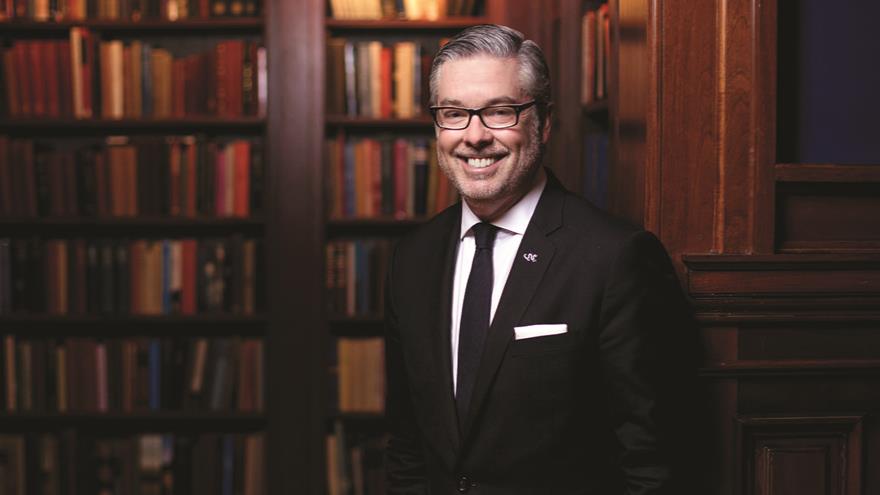Drexel University President John Fry Elected Member of the American Philosophical Society

Drexel University President John Fry was recently named a new member of the American Philosophical Society, the oldest learned society in the United States. The highly prestigious membership is limited to an elected body of esteemed scholars and leaders from a variety of disciplines including the arts, sciences, humanities and professions.
Fry is one of just 37 members elected this year and joins approximately 1,000 elected members from across the country and around the world. The organization supports intellectual and interdisciplinary research and discovery, critical thinking and public education — all in the name of “useful knowledge,” as described by Benjamin Franklin, who founded the American Philosophical Society in 1743.
“I am honored to join this distinguished group of scholars and leaders from around the world,” said Fry. “The American Philosophical Society’s support of ‘useful knowledge’ aligns perfectly with Drexel’s mission to address and adapt to the needs of a rapidly growing society and prepare future generations of leaders to take their place in it.”
Also inducted in this year’s class were recent Nobel Prize in Medicine laureates Katalin Karikó, PhD, and Drew Weissman, MD, PhD; former Pennsylvania governor Thomas W. Wolf; Pulitzer Prize-winning novelist Geraldine Brooks; and many accomplished academics. Several presidents of U.S. colleges and schools, including Arizona State University, Oregon Health and Science University and Pomona College, were also elected.
Fry is continuing a legacy of connections to the American Philosophical Society dating back to the founders of Drexel University and the Academy of Natural Sciences of Drexel University. A myriad of additional connections can be made between the overlapping members of the American Philosophical Society, Drexel University community and the Academy of Natural Sciences over the past three centuries.
Philadelphia financier and philanthropist Anthony J. Drexel was elected as a member in 1892, a year after he founded the Drexel Institute of Art, Science and Industry. Drexel’s first president, notable education leader James A. MacAlister, was elected in 1886, when he was serving as the first superintendent of the Philadelphia public school district. Also elected in 1886 was legendary publisher George W. Childs, who founded and edited the Philadelphia Public Ledger newspaper he co-owned for about three decades with Drexel, his best friend and business partner. Instrumental in the creation of the Drexel Institute, Childs served on the Institute’s Board of Trustees since its founding and succeeded the founder as its president after Drexel’s death in 1893. Upon his own death a year later, Childs bequeathed his vast collection of art and manuscripts to the Drexel Institute, which the University continues to display on campus and store in Drexel University Archives and the Drexel Founding Collection.
The 1812 founding of the Academy of Natural Sciences of Drexel University was influenced in part by the American Philosophical Society, which has been located in Philosophical Hall, adjacent to Independence Hall, since 1789. Two of the Academy’s founders were later named members: mineralogist and the Academy’s first president Gerard Troost in 1816 and entomologist and conchologist Thomas Say in 1817. Over half of the Academy’s presidents have been members of the American Philosophical Society, including its first 15 presidents from 1812–1922. That overlap between the two organizations exists to this day; for example, Robert McCracken Peck, curator of art and artifacts and senior fellow of the Academy of Natural Sciences of Drexel University, became an American Philosophical Society member in 2022.
This month, the Academy of Natural Sciences and American Philosophical Society have jointly organized a conference, “Making Nature: The Labor of Natural History,” from June 6–7 that explored the ways humans have imagined, depicted and constructed representations and knowledge about the natural world over time.
The American Philosophical Society’s past and present members include U.S. presidents (from George Washington to Barack Obama), inventors, Supreme Court justices, scientists, government officials, artists, academics, professional leaders and, since the beginning of the 20th century, more than 260 Nobel Prize winners.
In This Article
Drexel News is produced by
University Marketing and Communications.

